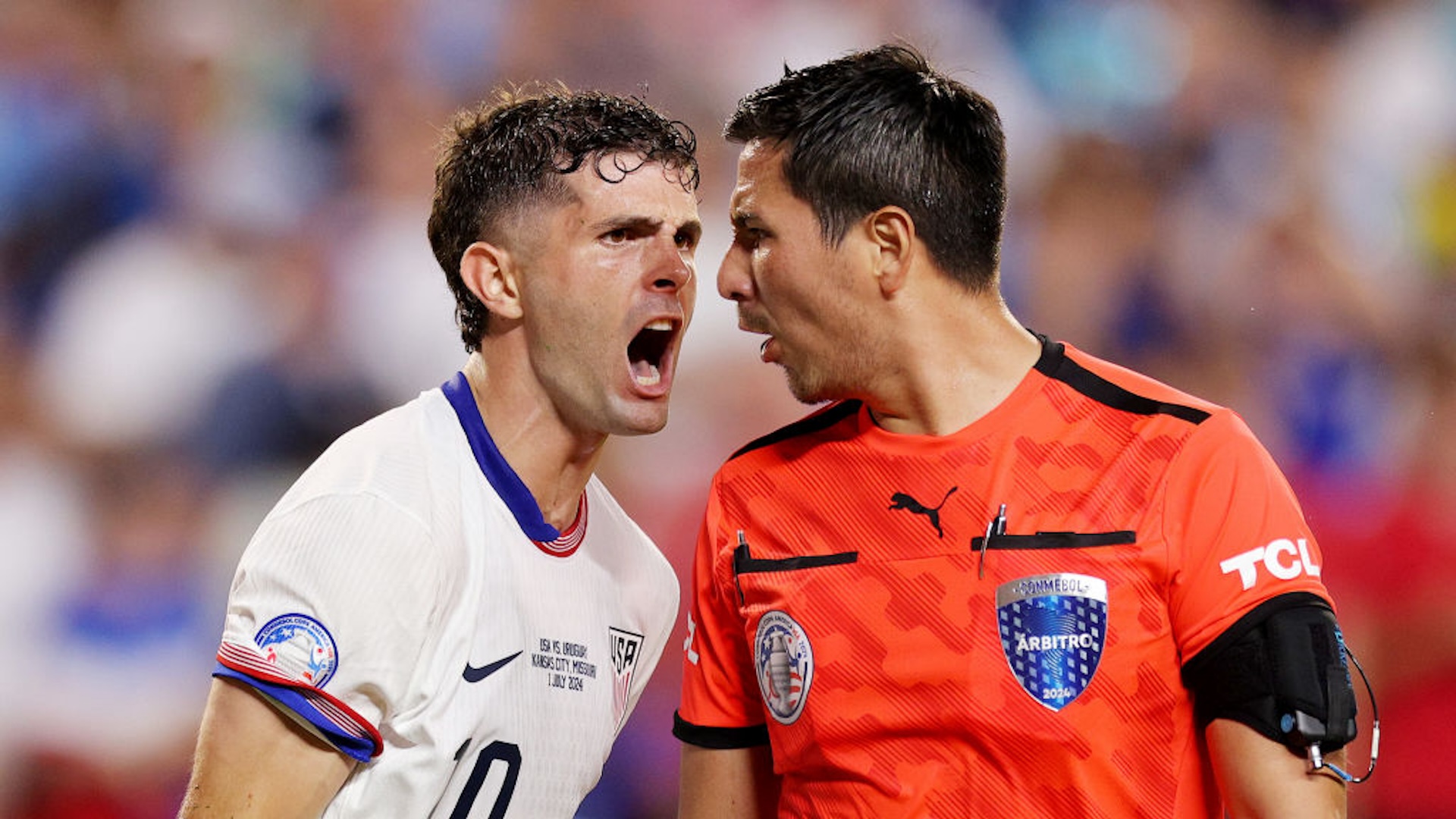Nothing brings on an impromptu and intense season of recrimination quite like a group-stage exit. Ten days ago, the USMNT opened the Copa America with a 2-0 win over Bolivia and was making travel plans for the round of 16. Two enervating losses later, and the Americans are once again being chased home by questions about where exactly this team stands.
Tournament soccer is defined by moments. You are only guaranteed three games, which means a single misstep can turn a summer of joy into one of angst. The USMNT experienced one of those moments in their second game against Panama, when Tim Weah committed an idiotic foul off the ball and received a red card in the 18th minute, dooming the U.S. to a dispiriting 2-1 loss. Good teams, however, manage to find their way out of tricky spots, and the Americans had their chances to make an escape. They went up 1-0 on Panama shortly after Weah's red, but then failed to protect the lead against a far inferior, if numerically advantaged, opponent. Monday night brought another shot at redemption: Beat the group's best team, Uruguay, and protect a slim goal-differential advantage over Panama, and the U.S. would be through to the next round.
Maybe it was because CONMEBOL spent about 30 minutes treating us to one of the most absurd camera angles ever devised by a sports broadcast, but last night's game felt like it was on tilt from the kickoff. Uruguay, all but guaranteed a trip to the next round, not only decided against rotating its starting 11, but came out playing just as intense of a brand of Bielsa Ball as you'd expect to see if they were the ones trying to stave off elimination. The Americans were similarly charged up, flying into tackles and making the kind of sprints that players tend to make when they know their reputations (and their manager's job) are on the line. Add to that an inexperienced referee whose decision-making and grip on the game left a lot to be desired, and the tension couldn't have been higher.
That tension was eventually broken in the 66th minute. Moments after Bolivia did the U.S. a favor by equalizing against Panama, the Americans squandered the gift by surrendering a set-piece goal to Uruguay. Matt Turner did well to save the initial header, but was only able to palm the ball directly into the path of Mathías Olivera, who converted the tap-in.
It sure looked like Olivera was offside, but the goal stood after a lengthy VAR review, and then the broadcast got back to torturing viewers by failing to show a replay with the VAR lines before the game got back underway, only to twice throw the image up on our screens for a few scant seconds as the game churned towards its conclusion, a 1-0 win for Uruguay.
As is often the case when CONMEBOL and CONCACAF teams get together, there are plenty of talking points to be mined. The ref is a clown, the physicality got out of hand, VAR is a joke, etc. And to be fair to the USMNT, there are some good things to highlight about their performance. They met Uruguay's all-out, counter-pressing style with real bravery, repeatedly managing to dribble and pass around the players who were bearing down on them all night. The Americans engineered legitimately impressive passages of quick, one-touch soccer, and played with the kind of fervor and desperation that's required to beat a team like Uruguay.
They didn't beat Uruguay, though, and once you look past all the USMNT's sprinting and tackling and suffering, what you're left with is a pretty limp 1-0 loss in a must-win game on home soil. Those pretty, intricate passing moves never produced a real threat on Uruguay's goal, nor did the Americans' intensity ever threaten their opponents' composure. Everyone did a lot of yelling and shouting and trying, but all it produced in the end was a loss in which the USMNT took eight total shots and got three of them on target.
There is no silver lining to be found in a loss like this. The USMNT entered this tournament with the most talented roster it has ever had, and was placed into an easily navigable group. American fans were looking forward to this tournament not because they were eager to see how the U.S. matched up with Panama and Bolivia and hoping against hope for a round-of-16 appearance, but because they wanted to see how this team performed against the likes of Brazil, Colombia, and Argentina. The level of talent on the USMNT roster demands measurement against high-level opponents, and it demands that a single red card not be capable of derailing an entire tournament run.
Those demands were not met, and now the USMNT is back in what is increasingly becoming its natural state: undeniably talented, bitterly underachieving, and allergic to progression. We'll meet back here in a few years to see if anything has changed.






